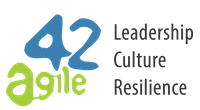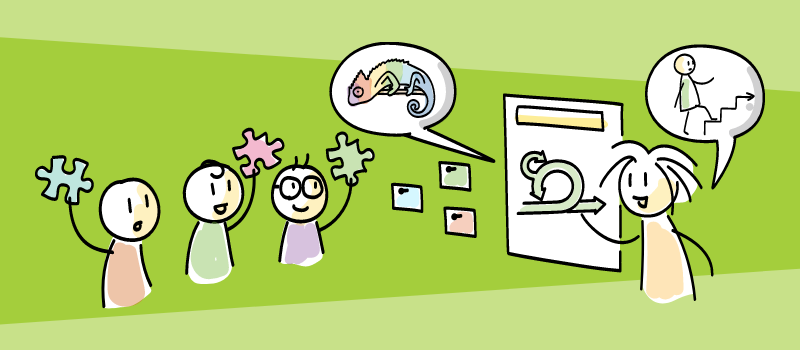Mentoring: Interview with Agile Coach Dennis Becker
/by Lauren EdwardsDennis Becker is an agile42 coach with a background in law, agile project management and human-centred design. In 2021 he joined the agile42 team, and experienced our mentoring-based onboarding processes. We asked him a few questions about what mentoring means to him, and why it's such a key part of agile business onboarding.
He shares his insights and reflections in the video below.
Register for October's free mentoring webinar to learn more about mentoring and ask questions.
Read the full interview transcript below:
Why is it important to have a mentor?
There are many ways in which a mentor can encourage and enable the personal as well as the professional development of another person. For example, they can help focusing on a goal or provide qualitative feedback.
In a company, the knowledge of a mentor can help in training and creating a high quality and productive workforce through mentoring programs. With the help of a mentor, the mentee can set personal as well as professional development goals themselves. At times when the mentee is having troubles completing a task or achieving a goal, you can go and ask the mentor for help. This encouragement may motivate the mentee to continue despite obstacles and a mentor can also recognize and articulate the strength of the mentee to instill confidence.
There's honest feedback that comes from a trusting mentoring relationship. Through building trust, the mentee understands that the constructive criticism he gets or may get is aimed to their growth and is not intended to to make them feel miserable. A mentor can expose weaknesses and point out opportunities for improvement to the mentee.
In a nutshell, the mentor can support your growth, help you setting goals, and offer encouragement and feedback.
How has agile42's mentoring made a difference to your onboarding experience?
When you start a new job, and perhaps even take a new position, the flood of new information and things can often leave you somewhat disorientated. It's just too much. At first, it can even be difficult to recognize your own value, and how you can best contribute.
By offering weekly mentoring from the first week on, agile42 was helping me a lot to quickly understand the context and procedures I was in and to quickly get my head around things. However, we paid special attention also to my individual development, which means that we picked out various topics which are important from my perspective in order to reach goals and to improve.
Due to the situation with COVID, and the remote setup, the mentoring had a different importance, I think, than in previous jobs because it was more difficult to get a feeling for your work, for your colleagues, and what you actually do and with whom. So the mentoring was already helping me a lot to get started.
What is important when choosing a mentor?
What I think is important to consider when choosing a mentor is possible diversity. You will work closely with your mentor, and it's important that you harmonize with this person. Otherwise the relationship will feel a little bit strained or forced. But at the same time, you don't want to have someone who's just like you or your best friend, because you rather need someone who brings in a new perspective of things; who brings in diversity. And having this kind of mentor then helps you to step out of your comfort zone.
Secondly, trust is important. Trust is one of the greatest importance. After all, you will tell your mentor a lot of different things in confidence. In fact, this relationship will be most successful if your mentor trusts you as well as you trust your mentor. So build on this mutual trust to make the very best of your partnership.
Last but not least: expertise. You would like a mentor with enough experience to help you address your specific challenges. But that doesn't necessarily mean that you have to choose someone with the most years of work experience on their record. This isn't a matter of finding a mentor with the most years of experience or the greatest title. Instead, it's about choosing a mentor who has the knowledge as well as the experience to guide you along your own way.
To summarize, this means there are three important things to consider when choosing a mentor: first of all, diversity; second of all trust; and last but not least, expertise.
Curious about Mentoring?
Becker will be a guest in our October webinar, The Value of a Sensei: Lifelong Learning Through Mentoring. Along with agile42 coach Ninja Granzow, he will explore this theme and share insights. Register now for free to learn more and ask questions.






